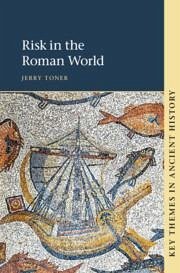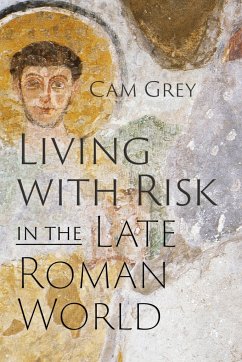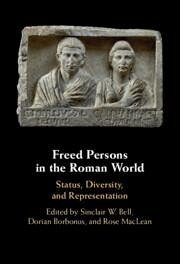
Risk in the Roman World
Versandkostenfrei!
Versandfertig in über 4 Wochen
81,99 €
inkl. MwSt.
Weitere Ausgaben:

PAYBACK Punkte
41 °P sammeln!
"How did the Romans handle risk, from uncertainty about food supply and dangerous travel to survival itself? Modern risk studies view the ancients as dominated by fate, but the reality was different. A range of techniques, from dream interpretation and oracles to logistics and law, all served to control risk"--














